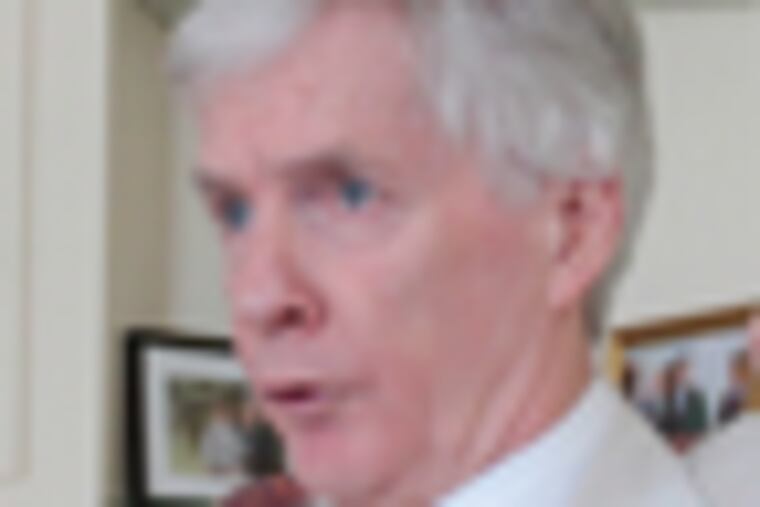Prospects seen for Afghan peace
KABUL, Afghanistan - Moderate Taliban figures have expressed interest in the fragile peace process, the outgoing U.S. ambassador to Afghanistan said Thursday, referring to a deal that appears even more elusive with this summer's rash of suicide attacks and bombings.

KABUL, Afghanistan - Moderate Taliban figures have expressed interest in the fragile peace process, the outgoing U.S. ambassador to Afghanistan said Thursday, referring to a deal that appears even more elusive with this summer's rash of suicide attacks and bombings.
Ryan Crocker, who is retiring a year earlier than expected, also said he thinks it's unlikely that the departure of most foreign troops by 2014 will plunge the country into another civil war or prompt a steep economic slide.
"I tend to consider those unlikely scenarios," Crocker said in an interview at the U.S. Embassy in Kabul.
Crocker, who became the civilian face of America's wars in Afghanistan and Iraq, said that the international community has pledged support for Afghanistan post-2014. And he said minority ethnic political leaders seem more interested in positioning themselves in the next Afghan administration than bracing for a civil war like the one that led to the rise of the Taliban after the Soviet exit in 1989.
"Politics is breaking out all over," he said of the uptick in political activity ahead of the Afghan presidential election in 2014. "You don't see many signs of the people saying, 'Well, it's time to start digging the trenches again.' "
Afghanistan has a history of conflict between warring ethnic factions. Pashtuns, who predominantly make up the Taliban, are the majority ethnic group in the country and have strongholds in the south. Minority factions, including the Hazaras, Uzbeks, and Tajiks, are more firmly rooted in the north.
Members of all the groups are part of the Afghan security forces, but some fear that without the presence of international troops, the nation and its police force and army could split along ethnic lines, prompting another civil war.
The ambassador acknowledged that northern Afghanistan has a lot of militias, but said he didn't think they threatened national unity.
"I think their primary interest has been criminal activity, rather than preparing for the next civil war, which I really don't see coming," he said.
Crocker is retiring this month from the foreign service after a storied tenure in some of the world's most dangerous hot spots. Without giving specifics, the U.S. State Department said health reasons have forced the 62-year-old envoy to leave Kabul.
Crocker, an Arabic speaker and six-time ambassador who also ran embassies in Iraq, Pakistan, Kuwait, Lebanon, and Syria, came out of an earlier retirement in 2011 to take the helm of the embassy at President Obama's request.
The ambassador said that as the spigot of international military and civilian assistance slows, the Afghan economy will "take a dip." But he said the country will have solid security and economic assistance well beyond 2014.
On prospects for peace talks with the Taliban, Crocker said moderate Taliban figures like Agha Jan Motasim were "sending out feelers." Motasim, one of the most powerful men on the Taliban leadership council, told the AP in May that a majority of the Taliban want a peace settlement and that the movement has only a few hard-liners.
Asked if these Taliban leaders were worried about getting killed by the hard-liners, Crocker replied "Yep."